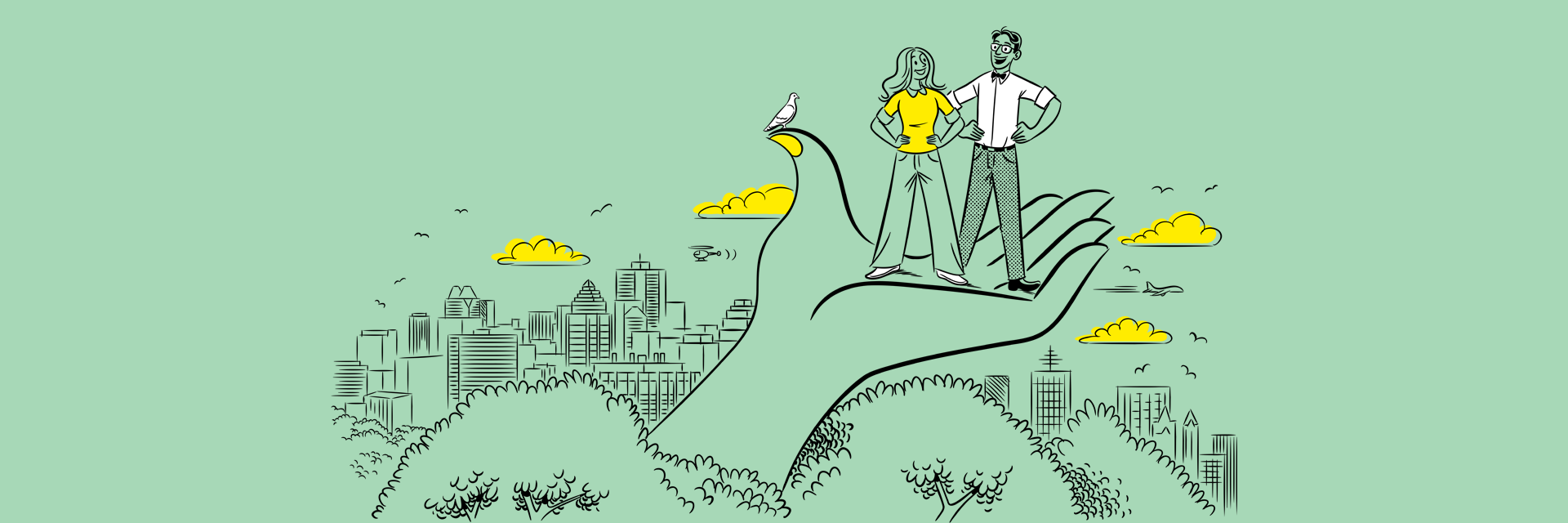
For Earth Day, let’s talk!
There's a worrying and strangely paradoxical trend in Canada at the moment (which can certainly be extrapolated to the rest of the world too): the foundations of climate change and the existence of solutions to combat it are being called into question at a time when investments in this area are breaking records.
Yet the science is extremely clear on the subject. Climate change is caused by greenhouse gas (GHG) emissions produced by humans, primarily from fossil fuels. The more we produce, the hotter we make the planet.
Many of you may be surprised to read these first few lines. The fact that climate change is caused by humans has long been accepted in Quebec. It may seem surprising that this is now being called into question.
And yet... And yet! In recent years we have seen a rise in climate scepticism and new forms of denial:
- The Quebec’s climate action barometer (Baromètre de l’action climatique) reports an increase in people's sense of powerlessness, a drop in optimism about the future (21% think it's too late to act), and climate fatigue.
- Re.Climate reports a downward trend in the number of people who believe that climate change is caused by humans.
The Conservative Party's popular campaign in Canada to abolish the carbon tax is a good example. We've also seen it in France with the farmers. Étienne Leblanc of Radio-Canada published an excellent analysis (in French) of these new climate denial movements.
The groundwork for planning the fight against climate change has been laid. We couldn't have said that five years ago, but we've come a long way since then. We know which solutions to implement, we know how many greenhouse gases to cut, which technologies to introduce and which industries will pose the biggest problems.
Now is the time to properly communicate how these changes will take place and what impact they will have on people. We need to be able to initiate these discussions so that we can take action. From social acceptability to public involvement.
The results won't be immediate, just as climate change won't affect us immediately either. We'll probably avoid having fiction become reality as in the film The Day After Tomorrow, in the same way that the miracle solution to reduce our GHG emissions in one fell swoop will remain a figment of the imagination.
It's a transition we're about to experience. And a transition leaves a lot of room for grey areas and doubt. What's more, solutions and policies are complicated jargon, and not easily accessible. It's easy to become cynical when the language used by our decision-makers isn't our own. That's precisely why it's imperative that we popularize what's being done to combat climate change. Otherwise, we can lose allies; citizens who could have rallied if only the measures implemented had been properly explained. People rally to defend causes they understand.
A transition to combat climate change can mean an improvement in our quality of life. We just need to talk about it in the right way: modernising our infrastructure, improving the reliability of public transport, heating more efficiently and cheaply with a heat pump, and so on.
This new wave of climate scepticism, of denying that there are solutions, or of believing that it is already too late, is a worrying trend that needs to be taken seriously. We need to be able to talk to each other. We need to be inclusive. This is a societal battle we're fighting, on a global scale. There will never be unanimity about what is at stake, but the urgency to act should be enough to bring us together.
Being inclusive means accepting differences in values, differences in political ideology, whether right or left, liberal or conservative, in order to really work together. The solutions developed in recent years and the growing collective awareness augur well for the future. Let's be optimistic and stay the course!
For Earth Day, let’s talk.